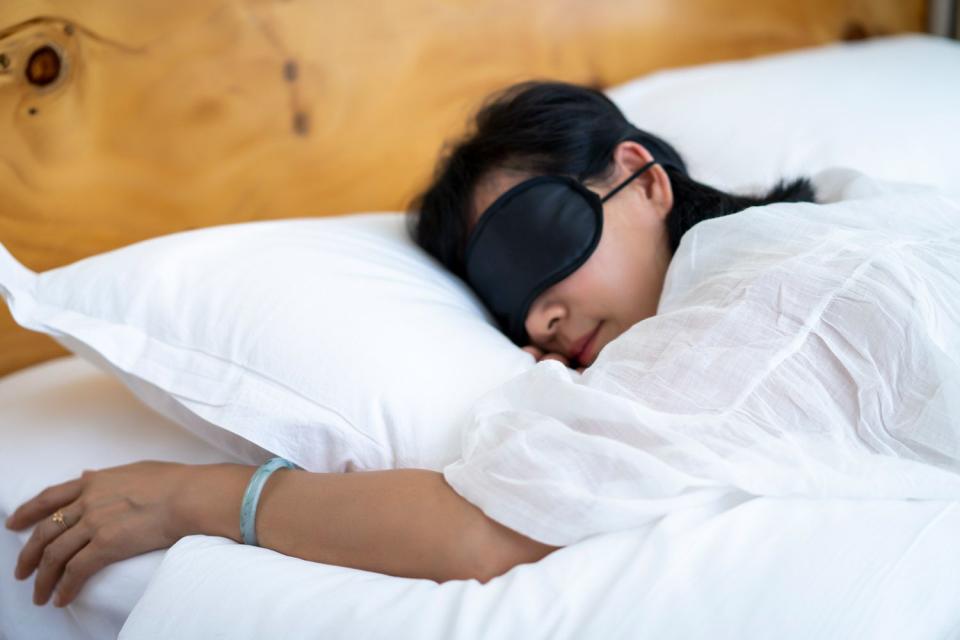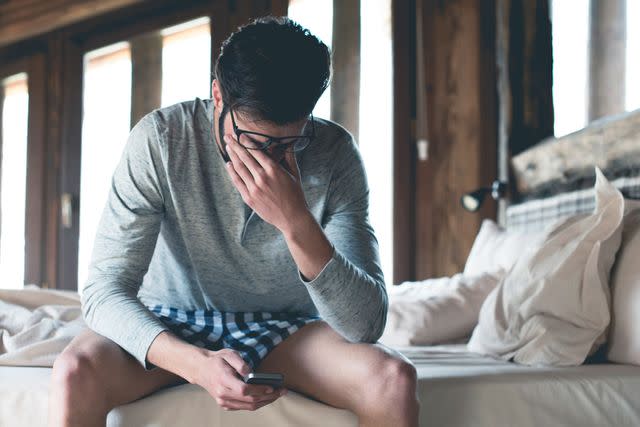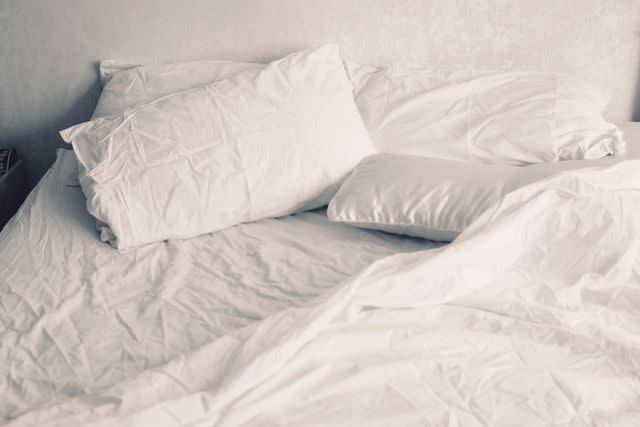A Bad Night of Sleep Actually Makes You Feel Older, Study Shows
"The findings revealed that insufficient sleep and sleepiness led people to feel older than their actual age," a new research article explains

Getty
Stock image of a person sleeping in bed with a blindfoldSleep really does make you feel younger.
Leonie Balter, a sleep researcher at Stockholm University in Sweden, led two studies that showed how sleep patterns impact how old or young someone feels.
In one study, 429 individuals aged 18 to 70 were given questionnaires that analyzed the quality of their sleep.
"Those who reported having zero out of 30 days of insufficient sleep felt younger than their calendar age, with a subjective age that was on average 5.81 years younger," a research article published on March 27 in Proceedings of The Royal Society B explains.

Getty
Stock image of a tired individual sitting in bedParticipants who reported having a night of insufficient sleep had an older subjective age.
The findings showed that "for each additional day of insufficient sleep during the last 30 days, subjective age increased by 0.23 years."
In the second study, 186 people aged 18 to 46 slept in a lab and experienced sleep restriction and saturation. On the two nights with sleep restriction, the participants were allowed to sleep only four hours each night.
When they were introduced to sleep saturation, they were allowed to sleep for nine hours on two other nights.
The findings showed that "after sleep restriction, participants felt on average 4.44 years older as compared to after sleep saturation, where they felt 0.24 years younger than their calendar age."

Getty
Stock image of an empty bedRelated: Costco's $179 Weight-Loss Program May Help You Get an Ozempic Prescription
The second study also found that people who prefer to wake up earlier tend to feel younger when they get a good amount of sleep.
"These results suggest that morning types, on average, feel subjectively younger when sleep is saturated but experience a larger increase in subjective age when exposed to sleep restriction," the research article explains.
"Both studies, one cross-sectional and one experimental, demonstrate that sleep and sleepiness play a profound role in shaping our sense of age," the article reads.
Never miss a story — sign up for PEOPLE's free daily newsletter to stay up-to-date on the best of what PEOPLE has to offer, from juicy celebrity news to compelling human interest stories.
"The findings revealed that insufficient sleep and sleepiness led people to feel older than their actual age and support that a good night's sleep is central for feeling younger than one's actual age," it continued.
For more People news, make sure to sign up for our newsletter!
Read the original article on People.


